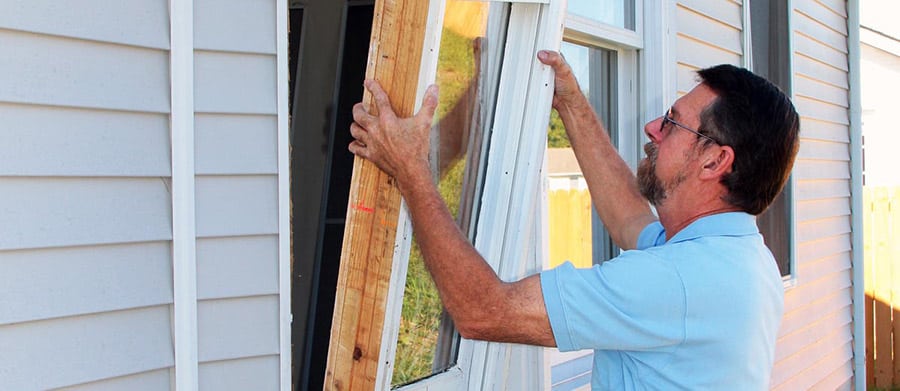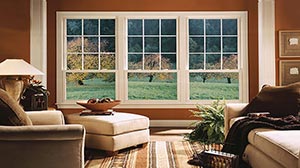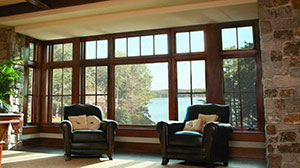
Windows serve many functions in our home. As a home inspector, I inspect windows daily. But recently, I’ve been thinking about replacing some of the windows in my home and started researching them more thoroughly from a buyer’s perspective. I’m finding there are many reasons why windows should be replaced more frequently than people may think.
Most vinyl windows will last 15 to 20 years. Depending on materials and window quality, some windows can last 25 years or more. Often, double-pane window failure occurs when the thermal seal breaks, causing the window to fog. Most manufacturers warranty new windows for 6 to 10 years, while some high-quality windows, like Pella or Andersen, have a lifetime warranty on specific window models. Window longevity depends mainly on how well they are taken care of and on the materials they are made of. Of course, windows should be replaced as needed.
There are plenty of factors that surround whether or not you should replace windows. But, you don’t always have to wait for the windows to be in terrible shape to replace them, no matter how long-lasting they may be. That’s why we have to talk more about your windows and how often you should replace them depending on certain factors.
How Many Years Do Windows Last?
Windows are generally resilient enough to last for two decades, depending on how well they are taken care of and your home’s location. More often than not, windows are designed to last for a minimum of 15 years, but some can reach up to 25 years, depending on certain circumstances that affect the lifespan of the window.
So, what are the circumstances and factors that can easily affect the longevity of your windows? There certainly are plenty of them, but I have taken the liberty to list down the ones that have the most effect on the condition of your windows:
Materials
The standard window made of quality products and materials will last at least 15 years and have a maximum lifespan of over 20 years. However, some windows tend to last longer than most.
Today, windows made of uPVC or vinyl are expected to last 20 to 25 years. Meanwhile, aluminum windows are expected to last 25 years or more in some cases. Wood windows should last more than 50 years as long as they are appropriately maintained.
Window lifespan primarily depends on the quality of materials they are made of and on the quality of the initial installation.
| Average Lifespan of Windows Based on Materials Used | |
|---|---|
| Vinyl | 20 to 25 years. |
| Aluminum | more than 25 years |
| Wood | more than 50 years |
Where You Live Affects Window Lifespan
Homes located in different regions around the country tend to experience climate, weather, and environmental conditions that are unique to those areas.
Houses in regions that experience hot summers and cold winters often have windows that are much more prone to damages than those in places with milder climates.
Houses in coastal regions can also expect windows to suffer a lot of constant damage. Strong winds and the salt in the air can be detrimental to the overall condition of the windows too.
That said, you have to factor in the location of your house and how exposed it is to the different environmental conditions in your region. Whether or not your windows will be able to last for as long as you expected them to depend on many factors.
How Frequent (or Infrequent) You Open and Close Windows
Frequency of use also plays a role in how long your windows will last because windows are made of different moving parts that allow them to close or open depending on your needs and preferences.
Regardless of whether you are using sliding windows or hinged windows, your windows will wear down the more you use them.
Windows that are often closed or open will expectedly suffer more accumulated damage in the long run. For example, windows in rooms that are barely used will probably last forever unless the elements damage them sooner or later.
How Do You Know When To Replace Windows?
If you are wondering whether or not you should already replace your windows, especially when they have reached the minimum number of years based on the regular lifespan, here are four tell-tale signs your windows need to be replaced:
1. Clear Cracks & Other Forms of Damage
Your windows take a ton of accumulated damage in exchange for protecting your home from the elements. In time, some cracks and other forms of damages will become too obvious to the point that they will tell you that it is time to get the windows replaced. Such damages can include rotting portions of the windows and cracks, which are impossible to repair.
2. Condensation or Fogged Glass.
For windows made using multiple glass panes, if fog or condensation happens to build up quite often in the space between the panes, that means that there is a hole that has become unnoticeable to you. There are also cases where double-pane windows have a gas that’s meant to be trapped between the panes.
So, if condensation happens, that means that the gas may have leaked out. You have to replace the windows in such cases because you don’t want to end up with foggy windows that could very well be dangerous, especially when you want to see what is happening outside your home.
3. Rotting Window Frames and Sashes
Most windows are made of wood. Because moisture from the outdoors can get trapped in the wooden parts of your windows, you will eventually notice your windows beginning to show signs of rotting. When the window frames rot, they won’t support the entire window and should already be replaced.
4. Rising Energy Bills or Drafty Rooms
The purpose of windows is to keep your interior away from the excess heat or cold from the outdoors. However, if you notice that your energy bills are rising because your heater or air conditioner is starting to work harder.
Or, if you notice that one room or portion of your home is a bit drafty, that might mean that the windows aren’t doing their jobs well anymore and should be replaced with new ones.
How Often Should You Caulk Windows?
You should usually replace high-quality caulking every five or so years, but those made of lower quality should be routinely inspected and may even need to be replaced annually.
But, first, let’s understand what caulking is.
Caulking is the sealer that keeps the materials of your windows together. It helps to keep air and insects out of your home and improve the effectiveness of your windows. In short, it is there to fill in gaps.
Caulking doesn’t last too long because it is subjected to the same conditions that affect the health of your windows.
In general, you should inspect your windows’ caulking every two years and try to see if there are drafts in certain parts of your room or if the energy bill is spiking even though the windows aren’t damaged.
How Often Should Windows Be Glazed?
How often glazing should be done depends on the quality of the last glaze job. If poorly done, I recommend that you do it every two years. However, glazing that was done correctly should last for at least ten years.
Glazing your window is the process of applying that putty substance that helps in weatherproofing your windows as the putty creates a sealant between the wood that supports the glass and the glass itself.
In most cases, glazing is done during fall, just before winter is about to start, because it allows your home to withstand the cold temperatures of the freezing season.
Certain conditions can lessen the quality of your glazing. For example, windows often exposed to sunlight will have glazing that tends to dry out quickly and start peeling off sooner or later. For such windows, glazing should be redone a lot more frequently.
You must always inspect your windows to check whether or not the glaze is still intact to know if there is a need to redo it.





